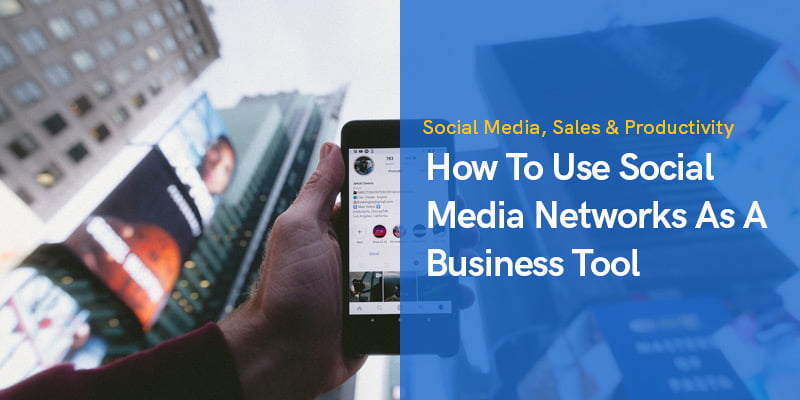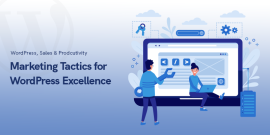
The Impact of Social Media on Students
Table of Contents
ToggleSocial media refers to websites and apps where you can share your own content and engage with posts from others. This includes photos, text, reactions, comments, and links.
Many people use social media to stay connected with their friends and make new connections, especially teens who generally rely on friendships for support and identity formation. It's worth considering how social media usage impacts teenagers.\
Social Media and Students – An Interconnected Storyline
A 2022 survey of 13- to 17-year-olds revealed that social media plays a crucial role in the daily lives of many teenagers, with approx. 35 percent using popular platforms like YouTube, TikTok, Facebook, Instagram, and Snapchat multiple times daily.
The effect of social media on mental health in adolescents can vary depending on factors such as online behavior, time spent online, psychological state, and personal situations.
The Healthy Space of Social Media
Social media enables adolescents to form virtual identities, converse with peers, and establish social connections. These connections can offer valuable support to teens lacking offline social networks, experiencing loneliness, facing stress, marginalized due to race, sexual orientation, or disabilities, or dealing with chronic illnesses.
According to an essay writing service, social media also allows teens to explore self-expression, communicate with peers locally and worldwide, learn coping strategies, participate in moderated discussions on mental health, seek help for mental health symptoms, and access healthcare.
These positive effects of social media benefit all teens and may strengthen connections for those at risk of depression and provide humor and distraction during tough times.
The Unhealthy Space of Social Media
Using social media may negatively impact teens by distracting them from tasks like homework, exercise, and family time.
It could also disrupt their sleep and expose them to incorrect information and biased content. Additionally, it may lead to sharing personal details, spreading rumors, and forming unrealistic views about others. However, that’s not where it ends, though.
Online predators and cyberbullying are concerns that can result in mental health issues such as anxiety and depression. Risky content and negative interactions have even been associated with self-harm and, in rare cases, death.
The amount of time spent on social media is a factor in these risks, as shown in a study focusing on 12- to 15-year-olds in the US conducted in 2013 and 2014, involving over 6,500 participants.
Another study examined data on over 12,000 teens in England aged 13 to 16, revealing that using social media over three times daily predicted diminished mental health and well-being.
However, not all research has established a connection between social media usage and mental health risks in teens.
The impact of social media on teens may vary based on how it is used, with content depicting illegal acts, self-harm, harmful behavior, and encouragement of eating disorders posing potential risks. Exposure to discrimination, hate, or cyberbullying can heighten depression risks for teens.
Additionally, the content shared by teens on social media is significant, as impulsive behavior, known as stress posting, can lead to negative consequences. Sharing personal stories or sexual photos may result in bullying, harassment, or blackmail.
How Do You Protect Your Child from Social Media?
You can guide your teenagers in using social media responsibly and reducing potential negative impacts by setting rules and limits.
For instance, establish guidelines like no social media until homework is finished or set a daily time cap for social media usage.
Additionally, consider restricting social media during specific times, like family meals or before bedtime. Make sure to lead by example by adhering to these rules and inform your teen of the consequences for not following them.
Deal with any challenging behaviors regarding your teenager's social media use by discussing it with them. It might be useful to seek support from other parents or monitor your teen's online activity to address any issues.
Adjust privacy settings to protect personal information on social media platforms.
Regularly monitor all of your teen's social media activity as recommended by the American Psychological Association. “Friend” or follow your teen's accounts to track their online behavior, gradually reducing supervision as they mature.
The Additional Ways to Make Your Kid Free from Social Media
Engage in regular discussions with your adolescent about social media.
This provides opportunities to inquire about their feelings regarding social media. Prompt your teen to communicate any online concerns or discomforts they may have.
Regular conversations allow you to offer guidance on social media to your child as well.
For instance, you may coach your teen on critically evaluating the accuracy of content.
Besides, you can also educate them on the deceptive nature of beauty and lifestyle imagery often found on social media.
Lead by example for your teen by sharing your own social media habits. This might help you demonstrate positive behavior and ensure that your discussions are not one-sided.
Clearly outline what behaviors are unacceptable.
Emphasize to your teens the harmful impact of gossip, spreading rumors, bullying, or damaging someone's reputation — whether online or in person.
Furthermore, instruct your teen not to disclose the personal details to strangers online, such as addresses, phone numbers, passwords, or financial information. Promote in-person interactions with friends, particularly for teens who may struggle with social anxiety.
A Word of Warning
Discuss with your child's healthcare provider if you believe your adolescent’s displaying signs of anxiety, depression, or other mental health issues linked to social media usage.
Furthermore, consult with the healthcare provider if your adolescent exhibits the following signs: Persistent social media usage despite wanting to quit, excessive use impacting school, sleep, activities, or relationships, exceeding intended time on social platforms, and lying to use social media. Your adolescent may be referred to a mental health professional for assistance.
The Final Say!
Both positive and negative impacts of social media on students exist.
It has benefits in communication, information sharing, education, and networking, but also drawbacks in addiction, cyberbullying, distraction, and misinformation.
Responsible and balanced use is crucial to maximize benefits and minimize negative effects, with parents and educators playing key roles in educating students.
Encouraging children to focus on e-learning, acquiring new skills, and modern technologies rather than social media engagement is advisable.
How to Use Social Media as a Business Tool Safely
As a business, it is important to be aware of the risks associated with social media and to take steps to protect yourself and your employees.
While social media can be a great way to connect with customers and promote your business, it can also be a source of risks, such as cyber-attacks, data breaches, and reputational damage.
There are a few key things you can do to help protect your business when using social media:
- Be aware of the risks. Make sure you understand the potential risks associated with social media and take steps to mitigate them.
- Have a policy in place. You may help to guarantee that your employees use social media safely and responsibly by implementing a social media policy.
- Be active in monitoring. Regularly monitor your social media accounts and take action if you see anything that could be a risk to your business.
- Respond quickly to any issues. If there is an issue with your social media accounts, such as a data breach or negative publicity, respond quickly and take steps to resolve the issue.
By following these steps, you can assist to guarantee that your company uses social media safely and successfully.
The risks of social media
There are risks associated with using social media as a business tool, but they can be managed with a bit of planning and thought. Here are some of the dangers to be aware of:
- Breach of data security and privacy. Social media platforms are a treasure trove of data, and if they fall into the wrong hands, it could be disastrous for your business. Make sure you have robust security measures in place and be careful about what information you share on social media.
- Reputational damage. One mistake on social media might harm your company's reputation. Be thoughtful about what you post, and consider using a tool like Google Alerts to monitor your online reputation.
- Time suck. Social media can be a huge time sink, and if you're not careful, it can take away from more important tasks. Set limits on how much time you and your employees spend on social media, and make sure you're using it persuasively.
- Addiction and mental health issues. Social media can be addictive, and it can also worsen mental health issues like anxiety and depression. Be aware of the signs of addiction and mental health problems, and take steps to limit your use of social media if it's starting to negatively impact your life. By being aware of the risks of social media and taking steps to mitigate them, you can use social media as a powerful business tool without putting your company at risk.
The benefits of social media
When used correctly, social media can help businesses to reach a wider audience, build brand awareness, and connect with potential and current customers.
There are numerous methods for businesses to benefit from social media. One of the most effective ways is to use social media to create and share content that is relevant to their target audience.
By doing this, businesses can not only attract new customers but also keep their existing customers engaged. Another great way to use social media is to run social media campaigns.
These campaigns can be used to promote special offers, drive traffic to a website or landing page, or simply raise awareness about a particular issue or cause.
When done right, social media campaigns can be extremely effective in driving results. Ultimately, social media is an incredibly powerful tool that businesses should use to their advantage.
By creating and sharing relevant content, and running targeted campaigns, businesses can reach a wider audience, build brand awareness, and connect with potential and current customers.
How to Reach More Customers Through Social Media
By using social media, businesses can connect with more customers and create a more engaged customer base. There are a few key ways to use social media to reach more customers.
First, create social media accounts on the platforms your target audience is most active on. Make an effort to post interesting and engaging content regularly.
Use relevant hashtags, post relevant images, and tag other users when appropriate. Second, use social media advertising to reach even more potential customers.
Facebook, Twitter, and Instagram all offer advertising platforms that allow businesses to specifically target their ideal customers. Third, consider partnering with influencers on social media.
Find influencers who align with your brand and who have a large following. Collaborate with them on social media campaigns, and offer them compensation in return for promoting your business to their followers.
By using these three strategies, businesses can make the most of social media and reach more customers than ever before.
How to Engage Customers Through Social Media
There’s no question that social media has changed the way businesses interact with customers. In the past, businesses would use more traditional methods, such as print ads, TV commercials, and direct mail marketing, to reach their target audiences.
However, with the advent of social media, businesses now have a new way to engage with customers – and it’s proving to be very effective.
Studies have shown that social media is one of the most effective channels for customer engagement. A recent study by Oracle found that 78% of respondents believe that social media is important for providing excellent customer service.
There are several ways that businesses can use social media to engage with customers. One way is to use social media to provide customer service.
This can be done by monitoring social media channels for customer queries and complaints and then responding in a timely and helpful manner.
Another way to use social media to engage with customers is to use it as a platform to run marketing campaigns.
This could involve running competitions, offering discounts and special promotions, or simply sharing useful and interesting content that will help to promote your business.
So, if you’re looking for a new way to engage with your customers, social media is a great option. With its huge reach and potential for building strong relationships, it’s an excellent tool for any business.
How to use social media to create a brand
When it comes to social media, creating a brand is all about building up a strong and positive reputation. And the best way to do that is to be consistent with your branding across all of your social media platforms.
That means using the same profile photo, cover photo, and bio across all platforms, and posting content that is on-brand.
Of course, content is key when it comes to social media branding. So, what kind of content should you be posting?
First and foremost, it should be high quality and visually appealing. It should also be interesting and shareable so that your followers will want to engage with it.
And finally, it should be consistent with the overall tone and messaging of your brand. So, there you have it!
These are just a few tips for using social media to create a strong and successful brand. If you follow these tips, you’ll be well on your way to social media success.
How to Sell Products Using Social Media
Sales are the lifeblood of any business. If a company isn't generating revenue, it won't be long before it goes under. That's why it's so important for businesses to find effective ways to market their products and services.
One of the most powerful marketing tools available today is social media. When used correctly, social media can be an incredibly effective way to sell products and services. When using social media for sales, there are a few things to bear in mind.
First, it's important to create engaging and interesting content that potential customers will want to read or watch. If your content isn't appealing, you're not going to make any sales.
Second, you must be active on social media platforms. Don't just create a profile and then sit back and wait for the sales to come in. You need to be constantly posting and engaging with potential customers if you want to see results.
Finally, you need to offer something of value. If you're selling a product, offer discounts or free shipping. If you're selling a service, offer a free trial or a discount for the first few customers. People are more likely to purchase anything if they believe they are receiving a good deal.
If you keep these things in mind, you can use social media to sell products effectively. Just remember to be creative, and active, and offer value, and you'll be generating sales in no time.
How to Promote Events on Social Media
Using social media to promote events is a great way to reach a larger audience and get people excited about attending. There are a few things to keep in mind when using social media to promote events.
First, it’s important to create event-specific hashtags to make it easy for people to find and follow the conversation.
Second, make sure to post eye-catching photos and videos that will pique people’s interest.
And last, be sure to engage with your audience by responding to comments and questions. By following these tips, you’ll be able to successfully use social media to promote your next event!
How to Bring Traffic to Your Website Using Social Media
Organic traffic is essential to the survival of any online business. Without it, your website will struggle to attract visitors and generate leads. There are several ways to drive organic traffic to your website, but one of the most effective is through social media.
Social media is a powerful platform that can be used to connect with potential and current customers, promote your brand, and drive traffic to your website. When used correctly, social media can be a highly effective tool for growing your business.
Here are a few tips on how to use social media to drive organic traffic to your website:
- Use social media to share high-quality content. One of the best ways to do this is to share high-quality content on your social media channels. Blog entries, infographics, pictures, and other media may be included. Make sure that your content is engaging and relevant to your audience, as this will encourage them to click through to your website.
- Use social media ads. Social media advertising is a great way to reach new people who may be interested in your products or services. You can tailor your adverts to a specific demographic, and this can help to drive relevant traffic to your website.
- Use social media to build relationships. Social media is also a great platform for building relationships with potential and current customers. Don’t just use it to promote your business – take the time to engage with your audience, answer their questions, and build rapport. When people feel like they know and trust your brand, they’re more likely to visit your website and do business with you.
- Use social media to stay top of mind. Make sure that your social media channels are active and regularly updated. If people see that you’re constantly sharing new and interesting content, they’ll be more likely to visit your website regularly. By following these tips, you can use social media to drive organic traffic to your website effectively.
How to use social media to create content
As a business, one of the most important things you can do is create content that will help you reach your target audience. One way to do this is to use social media to create content.
This can be done by using social media platforms to create and share content that is relevant to your business. This can help you reach a larger audience and get more organic traffic to your website.
When using social media to create content, it is important to consider what type of content will be most useful to your target audience. You should also consider what type of content will be most likely to be shared by others.
Furthermore, you can also use social media to promote your existing content. This can be done by sharing links to your articles or blog posts on social media.
You can also use social media to drive traffic to your website by using effective keywords and hashtags. By using social media to create content, you can reach a larger audience and promote your business effectively.
Recommended Posts

Top 6 Free Windows Screen Recorders for Your Personal Blog
February 8, 2024

Marketing Tactics for WordPress Excellence in 2024
January 22, 2024

Improving Website Conversions with Customer Intelligence
December 24, 2023

